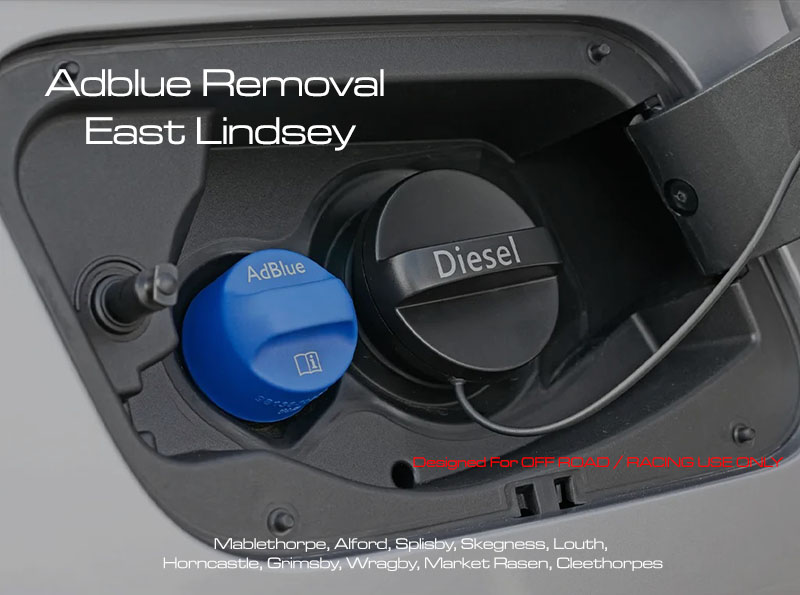Adblue Solutions
AdBlue is one of the common emission components we remove from newer diesel vehicles from 2014. The AdBlue systems are so unreliable, customers are having to spend a huge amount of money ( £900-£2000 ) when the vehicle is out of warranty to get these systems in a working order. We have even had main dealers contact us for a solution for their customers due to the techs in the workshop not being able to fix the Adblue faults. These Adblue systems go faulty repeatedly due to the amount of sensors, and most importantly the NOx sensor which is one of the most unreliable sensors in the history of vehicle electronics. The additional injector located in the exhaust system which sprays the Adblue fluid often becomes blocked. We can completely delete the AdBlue system from many vehicles this means you will NEVER have to fill up the AdBlue again or worry about the vehicle becoming a no start. ( yes, your vehicle will immobilise if the counter gets to zero! ) Many customers ask what is Adblue ? AdBlue, also known as Diesel Exhaust Fluid (DEF) / urea in the UK, and it's a solution used in modern diesel vehicles to reduce harmful emissions, particularly nitrogen oxides (NOx). It is a clear, non-toxic, and non-flammable fluid that is typically made up of 32.5% urea and 67.5% deionized water. AdBlue is injected into a vehicle's exhaust system to help convert NOx emissions into less harmful nitrogen and water vapor through a process called Selective Catalytic Reduction (SCR). Here's how AdBlue is used in a vehicle's exhaust system: AdBlue Tank: The vehicle is equipped with an AdBlue tank, usually located near the fuel tank. This tank stores the AdBlue fluid until it is needed. AdBlue Injector: In the exhaust system, there is an AdBlue injector, often located downstream of the diesel oxidation catalyst (DOC) and diesel particulate filter (DPF). The injector is responsible for injecting a precise amount of AdBlue into the exhaust stream. SCR Catalyst: The AdBlue is sprayed into the hot exhaust gases just before they enter the SCR catalyst. The SCR catalyst contains a special chemical catalyst, typically based on vanadium or iron, that facilitates the reduction of NOx emissions. NOx Reduction: When AdBlue is introduced into the hot exhaust gases, it undergoes a chemical reaction with the NOx emissions. The urea in AdBlue breaks down into ammonia (NH3), which reacts with the NOx in the presence of the SCR catalyst. This chemical reaction converts the NOx into harmless nitrogen (N2) and water vapor (H2O). Cleaner Exhaust: As a result of the SCR process, the exhaust gases leaving the vehicle contain significantly reduced levels of NOx, which are a major contributor to air pollution and smog formation. AdBlue Consumption: The rate at which a vehicle consumes AdBlue depends on various factors, including the vehicle's engine size, operating conditions, and emissions standards. Vehicles typically have sensors that monitor AdBlue levels and notify the driver when it's time to refill the AdBlue tank. It's important to note that AdBlue is not a fuel additive, and it does not improve fuel economy. Its primary purpose is to reduce NOx emissions, helping diesel vehicles meet stringent emissions regulations while minimising there environmental impact. Proper maintenance of the AdBlue system is crucial to ensure the vehicle continues to operate within emissions compliance, this is very expensive and many owner choose to go the route of Adblue Removal. Common questions we often get asked? Will my car pass an MOT? Yes! at present there are no checks for Adblue being injected into the vehicles exhaust. As such with our Adblue solutions which show no signs of tampering will mean it will go straight through an MOT, we can comment for other Adblue solution providers. Is it road legal? Our Adblue solutions are designed for Off Road / Racing Use only, you are removing an emission component from your vehicle. Will my vehicle still immobilise? The vehicle won't become immobilised from the Adblue. Will my DPF & EGR remain in place? Yes we don't touch or remove any DPF or EGR Component. its ONLY the Adblue part we delete from the vehicles software. Does an Adblue delete remove eolys fluid? No Eolys fluid is not a part of the Adblue system and the eolys system is not touched, Eolys simply helps the DPF regen. My car has been to a main dealer and they can't fix my Adblue issue, can you? We are recommended by many main dealers and workshops due to there mechanics not understanding these involved systems. Will my car run better? No, you will not notice any improvement. Adblue simply reduces emissions after they have left the engine. Can you put my ECU software back to factory? The vehicle can always be put back to standard however all previous Adblue issues will need fixing. Can you simply turn off the engine light? No ,our solutions are designed to make the vehicle function correctly with the Adblue removed. I have found someone offering a cheap Adblue solution, can you match it? No, we normally fix the mistakes of others! our solutions come from premium providers from around the world.
Please be aware our Adblue solutions are designed for OFF Road / Racing use only. ( Because you are removing an emission component from your vehicle it wouldn't be suitable for UK road use. )
We offer Adblue Removal in all local Lincolnshire areas such as East Lindsey & North East Lincolnshire. Mablethorpe, Alford, Splisby, Skegness, Louth, Horncastle, Grimsby, Wragby, Market Rasen, Cleethorpes. You can call us on 07340 341790 - Opening Hours Mon > Fri 09:00 - 17:00 Email: Sales@db-vehicle-electrics.co.uk
|

Call: 07340 341790Monday - Friday: 9am - 5pm |
